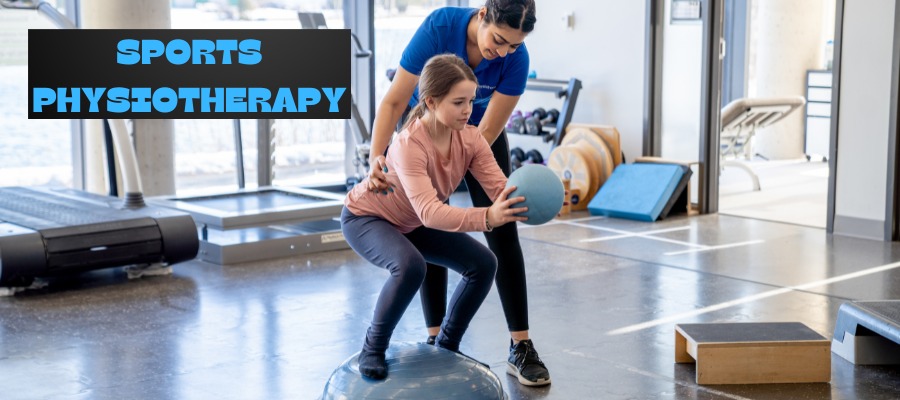Beyond the Finish Line: Long-Term Wellness in Sports Physiotherapy
Introduction
Long-term wellness in sports physiotherapy involves comprehensive injury prevention, personalized rehabilitation plans, and ongoing support to optimize athletes’ physical health and performance over time. Consistent monitoring, tailored exercises, and addressing biomechanical imbalances contribute to sustained well-being in the realm of sports physiotherapy.
Comprehensive Assessment
Medical History
In-depth exploration of past injuries, surgeries, medical conditions, and lifestyle factors is crucial. This comprehensive assessment helps in understanding the athlete’s current physical state.
Physical Examinations
A detailed evaluation of joint mobility, muscle strength, flexibility, and any signs of biomechanical issues is conducted. This step is essential to create a baseline for the treatment plan.
Individualized Treatment Plans
Goal Setting
Collaborative goal-setting with the athlete establishes realistic and motivating rehabilitation objectives.
Specific Exercises
Exercises tailored to the individual’s needs are prescribed, focusing on strengthening, flexibility, and functional movements. These exercises are critical in addressing specific deficiencies and improving overall performance.
Modalities
Various therapeutic modalities like ultrasound, electrical stimulation, or manual therapy techniques are used based on the specific injury and response to treatment. These modalities enhance the effectiveness of the rehabilitation process.
Injury Prevention Programs
Dynamic Warm-Ups
Warm-ups are essential in preventing injuries during training and competition.
Strength Training
Implement strength training programs targeting muscle groups crucial for injury prevention in the particular sport.
Technique Analysis
Assess and correct technique issues that might contribute to injury during training or competition.
Biomechanical Analysis
Motion Capture Technology
Employ advanced tools like motion capture to analyze joint movements and identify subtle biomechanical abnormalities. This technology provides detailed insights into movement patterns and potential issues.
Gait Analysis
Evaluate the athlete’s walking or running pattern to detect imbalances or irregularities that may lead to injuries. Gait analysis is crucial in identifying and addressing underlying issues.
Progressive Rehabilitation
Phased Approach
Structured rehabilitation phases start with basic exercises and gradually advance to more complex activities. This phased approach ensures a safe and effective recovery process.
Functional Progression
Incorporate sport-specific movements and activities to mimic real-game scenarios, ensuring a seamless return to competition. Functional progression bridges the gap between rehabilitation and actual performance.
Education and Awareness
Technique Education
Educate athletes on proper form and technique during exercises and sport-specific movements. Proper education helps in preventing injuries and optimizing performance.
Self-Management Strategies
Provide guidance on self-care techniques, such as stretching, foam rolling, and injury-prevention exercises for home use. These strategies empower athletes to take control of their recovery and maintenance.
Understanding Recovery
Explain the importance of rest, recovery, and adherence to the rehabilitation plan for long-term success. Understanding recovery is crucial for sustained performance and well-being.
Monitoring and Adjustments
Regular Reassessments
Regular reassessments ensure the effectiveness of the rehabilitation process.
Feedback Loop
Establish continuous feedback mechanisms with athletes to ensure effective communication and address concerns promptly. A strong feedback loop enhances the overall treatment experience.
Psychological Support
Mental Health Screening
Incorporate mental health assessments to identify any underlying issues affecting the athlete’s well-being.
Counseling and Coping Strategies
Provide psychological support through counseling, stress management techniques, and coping strategies to enhance mental resilience. These strategies help athletes in managing the pressures of their sport.
Periodic Check-Ups
Routine Follow-Ups
Schedule regular follow-up appointments, even after apparent recovery, to monitor long-term progress and address any emerging issues. Routine check-ups ensure sustained health and performance.
Nutritional Guidance
Dietary Assessment
Evaluate the athlete’s dietary habits and nutritional needs based on training intensity, competition schedules, and overall health. Proper nutrition supports recovery and performance.
Holistic Approach
Sleep Hygiene
Educate athletes on the importance of quality sleep and establish strategies for improving sleep hygiene. Good sleep is essential for recovery and performance.
Stress Management
Implement stress-reduction techniques such as mindfulness, meditation, or relaxation exercises.
Workload Management
Collaborate with coaches to monitor and adjust training loads to prevent overtraining and reduce the risk of injuries. Proper workload management ensures balanced and effective training.
Conclusion
Achieving long-term wellness in sports physiotherapy requires a holistic and dedicated approach. By integrating comprehensive injury prevention strategies, personalized rehabilitation plans, and ongoing support, one can optimize athletes’ physical health and performance over time. Detailed assessments and individualized treatment plans lay the foundation for effective recovery and injury prevention. Techniques such as dynamic warm-ups, strength training, and biomechanical analysis help athletes maintain peak performance while reducing the risk of injury.
At Arunalaya HealthCare, we are committed to providing top-notch sports physiotherapy services. Whether you need physiotherapy for home visit in Patel Nagar, advanced physiotherapy in Delhi, or specific treatments like CP treatment and chest physiotherapy, we have you covered. Our goal is to help athletes achieve long-term wellness and excel in their sports. Visit our physiotherapy center in Delhi and experience the best care with our dedicated team of professionals.
physiotherapy for home visit in patel nagar | physiotherapy in pitampura | best physiotherapist in rajender nagar | physiotherapy in naraina | best physiotherapist in inderpuri | physiotherapy center in punjabibagh | physiotherapy in punjabi bagh| physiotherapy in karol bagh | sports injury centre in delhi | sports physiotherapist in patel nagar | sports rehab center in patel nagar | cp treatment | physio clinic near me in delhi | chest physiotherapy near me | advanced physiotherapy in delhi | best sports injury physiotherapist in delhi | best sports injury physiotherapy in delhi | sports physiotherapist in delhi | back pain physiotherapy near me | home visit physiotherapy in delhi | physiotherapy center in delhi | best physiotherapist at home in patel nagar | physiotherapy in patel nagar | physiotherapist in patel nagar


